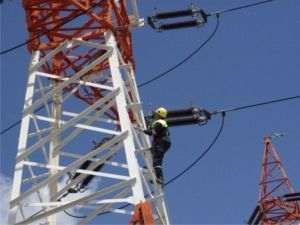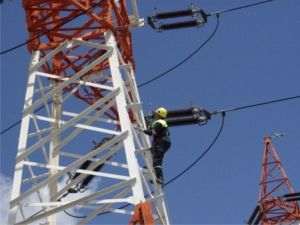The local press in our country is at risk of compromising the editorial independence of journalists and their safety, according to a report drawn up for 27 EU states by the experts of the European Center for Pluralism and Media Freedom (CMPF) and the Robert Schumann Center. . The respective document entitled "Uncovering news deserts in Europe. Risk and opportunities for local and community media in the EU" will be presented today on a debate that will take place at the headquarters of the European Parliament, after 3 p.m. Romanian time.
Regarding the state of journalism at the local level in our country, the report states: "There are serious deficiencies in the law on ensuring editorial independence, including the prevention of conflict of interests. In preparing the study, we found numerous links between the county or local administration and the management of some television stations, and the local media is very vulnerable to local political pressures, which are different advertising revenues come from the authorities, which are willing to allocate money only some means. press or delay payment for political reasons. Journalists' salaries are low and often not paid on time. Short-term and freelance contracts are similar, they do not include health insurance or social security, while offering little protection for journalists against untimely or arbitrary dismissals. Most internships in the press are unpaid and journalists are not organized in large professional associations that can successfully combat abusive clauses".
In light of the above, no one is surprised that the indications given in the report of the local Romanian mass media are very weak. Thus, regarding the media infrastructure at the local level, the cited document does not establish an average risk (58%), and regarding the market and coverage we have a high risk (67.5%).
Journalists in our country carry out their work in improper conditions, as long as the quoted paper states that there is a high risk (62.5%) regarding their safety, they benefit from editorial independence only to a small extent (high risk - 69%) and the degree of inclusion social is reduced a high risk located at 78%.
Regarding the above data and the findings of the report, Cristi Godinac, the president of the MediaSind Romanian Union of Journalists, told BURSA newspaper: "The report on the situation of local media in the EU confirms what the Romanian Union of Journalists MediaSind together with the European Federation of Journalists have conveyed, on countless occasions, to the Government: the media industry in Romania urgently needs a package of financial support measures, just like in other EU countries. Otherwise, hundreds of independent publications will go out of business and freedom of expression will be severely affected. The money received by some publications from parties for election propaganda does not solve the critical situation in which the media industry finds itself. A package of legislative and economic measures is needed to save the press. And, last but not least, there is a need for a real dialogue between the Government and trade union, professional and employer organizations".
The study also shows that 80% of citizens watch TV news, 30% listen to the news presented by radio stations and only 20% turn to the online environment to access daily news, the Internet being used for all other purposes and not for information.
The cited study states: "Available data suggests that online local media cannot compensate for the reduced availability of print media. In addition, the Internet is not yet the main source of news for most citizens. Only about 20% of Romanians turn to the Internet as their main source of news, according to the latest Standard Eurobarometer 92 published in 2020 for the year 2019. Television and radio are still the main ways most Romanians receive news, but it is not clear how much . from the citizens' need for relevant news at the local and regional level can be covered by these mass media. Eight out of ten Romanians name television as their number one or two source of news, and three out of ten say they listen to radio news. In addition to the regional public stations, there are 14 local, city-based TV stations, as well as a number of private regional TV stations, and almost all counties have at least one local radio station, but this does not mean that there is also a content . big news. The lack of data is a significant problem for the development of the local media landscape in Romania. In many cases, there is no such data, and in other data it is not aggregated, is only available on request, is not updated regularly, or is posted in non-machine-readable formats."
The study shows that the most pressing problems concern the decrease in media revenues, a decrease that is closely correlated with the biased allocation of advertising by central, local authorities and public institutions, as well as the controlled distribution of mass subsidies. - local media.
The cited document states: "Another urgent concern is the political control exercised through the direct and/or indirect ownership of the local media, a particularly widespread house in the member states of Central and Southern Europe. (...) Unsatisfactory working conditions are reported for local journalists, especially freelancers and freelancers, and online attacks against them are on the rise. In several EU member states there are no prominent media institutions that address marginalized groups; there is an under-representation of minority groups and a lack of programming in minority languages, especially in private local media institutions'.
The report recommends that public institutions provide more financial support to newsrooms and journalists at the local level and implement a regulatory framework that enables the development of local media. In addition, decent working conditions should be guaranteed for local journalists. The study recommends that professional organizations support journalists working in the most remote areas of the EU member states, in guaranteeing better working conditions and support in case of vexatious lawsuits. The study also recommends that local media companies be more transparent about their ownership and revenue and impose self-regulatory standards to prevent political and economic pressures on editorial content.








































